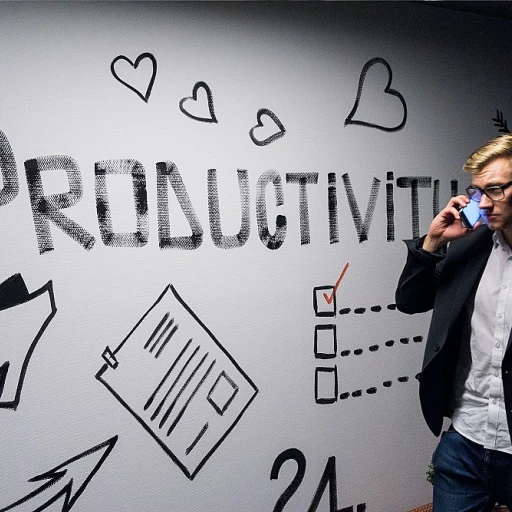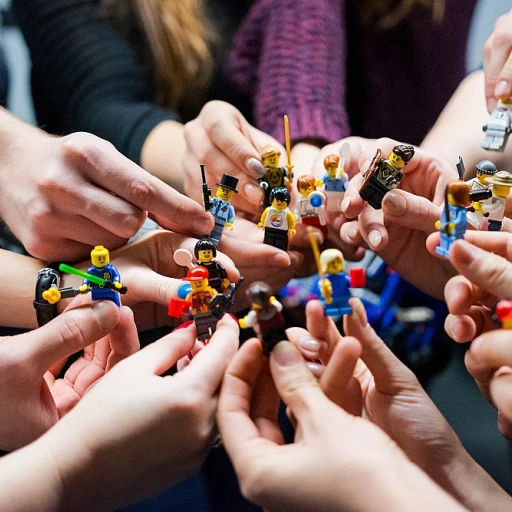
Understanding the Interview Process
Decoding the Dynamics of Job Interviews
The process of securing a job often begins with a series of interviews, which can be as thrilling as they are nerve-wracking. As a candidate, understanding the dynamics of job interviews is pivotal to navigating this crucial stage effectively. Recognizing the various stages of the interview process and preparing accordingly can significantly enhance your performance and leave a lasting impression on potential employers.Interviews typically begin with an initial screening, which may happen through a phone call or video chat. This stage is designed to evaluate whether your qualifications align with the basic requirements of the position. It’s an opportunity to showcase your enthusiasm for the role and briefly highlight your experience. The key here is conciseness and clarity. Moving forward, expect a sequence of one-on-one or panel interviews which can delve deeper into your technical skills, problem-solving abilities, and even cultural fit within the company.
Preparation is essential, so familiarize yourself with common interview formats and questions specific to your industry. This includes anticipating behavioral questions, which are aimed at assessing how you’ve handled situations in your past roles. Use the STAR method (Situation, Task, Action, Result) to keep your answers structured and impactful. Don't overlook the importance of researching the company and understanding its culture. Being well-informed reflects both your preparedness and genuine interest in the role.
Particularly noteworthy is the significance of a positive interview environment crafted by the employer. As we delve deeper into the mechanics of interviews, we explore how organizations can ensure a welcoming and efficient experience for candidates. Integrating comprehensive feedback loops and aligning company culture with the hiring process not only enhances the candidate’s experience but also reflects positively on the company’s brand.
Discovering stories from candidates who’ve thrived in their interviews can provide valuable insights and prepare you for the varied experiences that lie ahead in your own job search journey. Each interview is a learning opportunity, leaving room for feedback and improvement, which ultimately paves the way for building a successful career path.
Crafting a Positive Candidate Experience
Creating a Favorable Interview Experience for Candidates
In today's competitive job market, companies must go above and beyond to ensure a smooth and engaging interview process for candidates. The candidate experience plays an essential role and can significantly impact a company's reputation and ability to attract top talent. One of the first steps in crafting a positive experience is clear and transparent communication. From the initial contact to the follow-up after interviews, keeping candidates informed about what to expect at every stage is crucial. This transparency not only improves the candidate's journey but also reflects the company's values and professionalism. The environment in which interviews are conducted is another critical factor. Creating a welcoming and inclusive atmosphere can help put candidates at ease, enabling them to perform at their best. Whether virtual or in-person, ensuring a seamless and professional setup can positively influence a candidate's perception of the organization. Timely and constructive feedback is integral to the candidate experience. Providing insightful feedback, regardless of the interview's outcome, can leave a lasting impression. It also shows respect for candidates' efforts and encourages them to consider future opportunities with the company. Additionally, taking the time to understand and communicate the company's culture during the interview process is key. Candidates are increasingly interested in aligning their values with potential employers, and showcasing your company's culture effectively can make a significant difference in attracting the right talent. Evaluating and refining the candidate experience should be an ongoing process, utilizing metrics and feedback to identify areas for improvement. By prioritizing the candidate's experience, companies can enhance their recruiting strategy, ultimately benefiting their brand and bottom line.The Role of Company Culture
Embedding the Company Culture in the Interview Process
Creating a cohesive interview experience is more than just asking the right questions; it's about showcasing the company's unique culture to potential candidates. When applicants walk into an interview, they bring with them not only their skills and qualifications but also expectations and hopes of integrating into a new work environment. Company culture plays a pivotal role in shaping the entire interview process. By giving candidates a glimpse of the organizational ethos, it allows them to gauge whether they can see themselves thriving within the team. This perspective is crucial, as candidates are often seeking not just a job but a place where they will feel valued and inspired. To effectively embed company culture, employers can infuse elements of their values and mission into every stage of the interview process. This can be done through multiple touchpoints such as greetings that reflect the company ethos, presenting scenarios that are rooted in real-life office dynamics, and ensuring consistent messaging throughout interview stages. Moreover, potential employees appreciate transparency. Demonstrating how the company's culture influences its expectations, work environment, and team interactions paints a comprehensive picture for candidates. This transparency should extend beyond interviews to other aspects such as how feedback is provided and how performance is measured, further enhancing the overall candidate experience. One effective method for employers to showcase their corporate culture is through candid discussions with current team members. These conversations can illuminate what working within the company truly entails, thereby aligning the candidate's perception with reality. For companies looking to refine their interview strategies to better reflect their cultural identity, understanding how to effectively evaluate candidates during interviews is essential. Visit this insightful guide on effectively evaluating candidates during interviews to discover methodologies that align assessment with company values. Aligning the interview process with company culture not only benefits candidates by providing clarity but also helps organizations attract and retain talent that resonates with their core values. This two-way alignment fosters long-term satisfaction and productivity.Feedback and Improvement
Constructive Critique and Post-Interview Reflections
A critical component of any successful interview process is providing valuable feedback to candidates. While it is essential for hiring managers to assess potential employees, offering constructive insights post-interview can greatly enhance the overall experience for job seekers. This fosters a positive perception of the company, allowing candidates to feel valued and respected, regardless of the outcome. Creating a feedback loop is beneficial for both candidates and employers. For candidates, receiving detailed information about their performance and areas for improvement can be instrumental in preparing for future opportunities. Employers, on the other hand, gain a deeper understanding of how candidates interpret their interview process, which can lead to significant enhancements in aligning their hiring strategies. Timely feedback is another crucial consideration. Strive to inform candidates swiftly after the interview, as delayed responses can lead to disengagement and negatively impact the employer's brand. By keeping lines of communication open, you not only build trust but also contribute to cultivating a transparent and inclusive company culture. It is worth emphasizing that feedback does not need to be extensive to be effective. A structured approach, outlining key strengths and constructive critique, can suffice. Remember, the goal is to provide insights that are actionable and encourage professional growth. Incorporating candidate feedback into company practices is equally important. Companies should regularly review feedback to identify patterns and areas that require improvement. This continuous loop of dialogue and refinement helps create a more candidate-centric approach, ultimately leading to better hiring outcomes and an enriched company culture. To learn more about this process and its impact on company dynamics, explore the earlier discussion on the role of company culture in shaping interview experiences.Measuring Candidate Experience
Examining the Impact of Candidate Input
The interview process is often viewed as a one-way street, where companies assess candidates to fill positions. However, an emerging perspective highlights the importance of measuring candidate experience, which can significantly influence a company's reputation and attractiveness to prospective applicants. This section delves into the tools and strategies organizations can employ to evaluate and improve the candidate journey. To gain a thorough understanding of the candidate experience, feedback mechanisms are essential. From the interview process initiation to completion, collecting candidate insights helps shed light on areas that may require refinement, significantly enhancing the overall experience. Survey tools and post-interview feedback forms are practical methods to achieve this. By consistently seeking input, companies can identify trends, address recurring issues, and make informed changes. An integral part of measuring candidate experience is recognizing the influence of company culture on perceptions throughout the hiring process. As discussed earlier, a company's ethos and values play a crucial role in shaping the overall impression candidates gain during their journey. In evaluating candidate experiences, assessing whether company culture is effectively communicated and aligned with potential recruits' expectations becomes a pivotal focus. Moreover, understanding the feedback loop is essential. As previously highlighted, offering constructive feedback to candidates not only aids their personal and professional growth but also reinforces a positive image of the organization's commitment to transparency and improvement. Additionally, companies that embrace candidate feedback as a learning opportunity position themselves as forward-thinking and responsive employers. In summary, measuring candidate experience involves actively listening to candidate feedback, evaluating the impact of company culture, and implementing changes that reflect a commitment to continuous improvement. By leveraging these insights, organizations can refine their hiring processes, ultimately enhancing their employer brand and attracting top talent in a competitive market.Real Stories from Candidates
Bringing the Process to Life: Candid Testimonials
Every candidate steps into the interview room with a unique perspective, influenced by different experiences and expectations. Here, we dive into tales shared by individuals who have navigated the often complex and emotional journey of job interviews, shedding light on aspects highlighted in our previous discussion.
One common thread among many is the significance of a clear understanding of the interview process. Candidates appreciate when companies take the time to outline what they can expect at each stage. For Jessica, who recently interviewed at a tech firm, having a roadmap from her recruiter helped her feel more secure and prepared, alleviating stress that could otherwise have impacted her performance.
Equally essential has been the crafting of a positive candidate experience. Tom, a marketing professional, recalls an interview where he was greeted warmly and made to feel comfortable, right from the initial correspondence to the final feedback. This personal touch made a lasting impression, affirming his desire to work with a company that values and respects its candidates.
The alignment of company culture with personal values has also been a pivotal point for many. Sarah, a recent graduate, found that learning about a company's dedication to community service during her interview resonated with her own goals. Such insights into company practices can significantly influence a candidate's decision, demonstrating the mutual benefit when cultural compatibility is emphasized.
Feedback stands out as both a gift and a challenge. While some like Mike found constructive feedback motivating and useful for improvement, others have encountered situations where feedback was vague or lacking altogether, leaving uncertainty about where they stood in the process.
These stories reveal the nuances of the interview journey, where every interaction and detail contributes to the overall impression a candidate receives. Understanding this can help companies refine their approaches, driving towards a more empathetic and effective hiring process.



